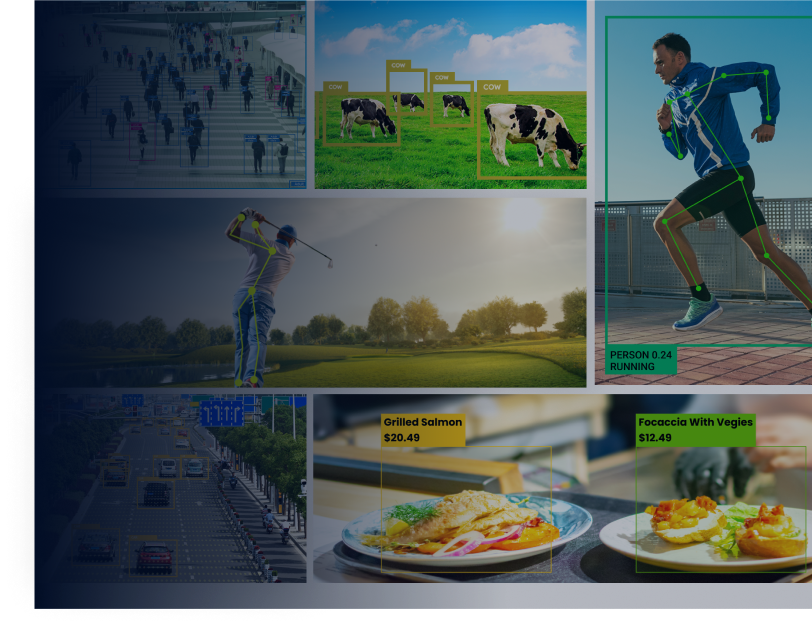In this blog, we delve into the dynamic world of generative AI, a rapidly evolving field of artificial intelligence with immense potential to revolutionize business operations. By harnessing generative AI services, businesses can accelerate content production, elevate customer service standards, and drive innovation in product development.
Join us as we explore the transformative benefits of generative AI, empowering organizations to unlock new opportunities and stay ahead in today’s competitive landscape.
Generative AI represents a cutting-edge branch of artificial intelligence that focuses on the creation of new content, ideas, and designs. Unlike traditional AI, which is primarily used for tasks like classification and prediction, generative AI systems have the remarkable ability to generate original and often highly realistic outputs.
In this era of rapid technological advancement, understanding the potential of generative AI is essential for organizations seeking to innovate and thrive in the digital age.

Generative AI Benefits Across Various Sectors
Let’s explore how generative AI services are driving impactful transformations across various sectors:
1. Automates and Innovates Content Generation
Generative AI empowers businesses to automate content creation processes, saving valuable time and resources for marketing teams. By providing specific instructions, AI text generators can craft compelling marketing copy, engaging blog posts, and captivating social media content.
Moreover, AI tools can fuel innovation by generating fresh ideas and concepts, leading to the creation of unique and impactful content strategies.
2. Enhances Customer Experience through Personalization
With access to vast amounts of customer data, businesses can leverage generative AI to deliver personalized experiences to their audience. By analyzing customer preferences and behavior, AI algorithms can generate tailored recommendations, product suggestions, and marketing campaigns.
This level of personalization not only increases customer satisfaction but also fosters long-term loyalty and engagement.
3. Optimizes Product Designs
Generative AI revolutionizes product design processes by providing valuable insights derived from data analysis. By analyzing market trends, consumer feedback, and competitor offerings, AI algorithms can identify emerging patterns and predict future consumer preferences.
This enables businesses to optimize their product designs, develop innovative solutions, and stay ahead of market trends, ultimately driving business growth and competitiveness.
4. Strengthens Cybersecurity Efforts
In an era of evolving cyber threats, generative AI plays a crucial role in bolstering cybersecurity defenses. By leveraging machine learning algorithms, AI systems can analyze vast amounts of data in real time, detecting anomalies and identifying potential security breaches.
This proactive approach enables businesses to rapidly respond to threats, mitigate risks, and safeguard sensitive information, thereby enhancing overall cybersecurity resilience.
5. Advances Healthcare Research
Generative AI accelerates innovation in healthcare research by facilitating drug discovery and development processes. Through the analysis of molecular structures and biological data, AI-powered systems can generate novel drug compounds, predict drug interactions, and simulate clinical trials.
This transformative capability expedites the pace of medical research, leading to the discovery of new treatments, therapies, and medical breakthroughs that improve patient outcomes and save lives.
6. Streamlines Business Processes
By automating repetitive tasks and data analysis processes, generative AI streamlines business operations and enhances productivity. AI-powered solutions can analyze complex datasets, generate actionable insights, and automate decision-making processes.
This enables organizations to optimize resource allocation, streamline workflow efficiencies, and drive operational excellence across departments and functions.
7. Improved Customer Service
Generative AI services enable businesses to deliver seamless and personalized customer service experiences through AI-powered chatbots and virtual assistants. These intelligent systems leverage natural language processing and machine learning algorithms to understand customer inquiries, provide relevant information, and resolve issues in real time.
By offering round-the-clock support and personalized interactions, AI-driven customer service solutions enhance customer satisfaction, retention, and brand loyalty.
8. Fosters Market Innovation
By analyzing market data and consumer insights, generative AI fuels innovation and inspires new ideas for product development and market expansion. AI algorithms can identify emerging trends, consumer preferences, and untapped market opportunities, empowering businesses to innovate and differentiate themselves in competitive industries.
This fosters a culture of innovation, agility, and creativity, driving continuous growth and market leadership.
9. Drives Digital Transformation
Generative AI catalyzes digital transformation by enabling organizations to harness the power of data-driven decision-making and predictive analytics. From predictive maintenance in manufacturing to real-time demand forecasting in retail, AI-driven insights drive strategic initiatives and drive organizational growth.
By embracing generative AI technologies, businesses can leverage data-driven insights to optimize processes, enhance customer experiences, and drive business outcomes in the digital age.
10. Inspires Creativity
Generative AI sparks creativity and innovation by generating novel ideas, concepts, and designs across various domains. From art and design to product development and storytelling, AI-po
Generative AI Platforms for Business
Several platforms and tools have emerged to enable businesses to leverage the benefits of generative AI effectively. Here are some notable generative AI platforms that businesses can utilize to unlock the full potential of this technology:
- OpenAI’s GPT (Generative Pre-trained Transformer): OpenAI’s GPT series, including GPT-4 is one of the most widely recognized generative AI platforms. These models are pre-trained on vast amounts of text data and can generate human-like text in response to prompts. Businesses can use GPT-based models for tasks such as content generation, language translation, and customer service automation.
- DeepArt.io: DeepArt.io is a platform that uses generative AI to create stunning artworks based on user input. Businesses in the creative industry can leverage DeepArt.io to generate unique visuals for marketing campaigns, branding materials, and product designs.
- DALL-E by OpenAI: DALL-E is a specialized generative AI model developed by OpenAI for creating images from textual descriptions. Businesses can use DALL-E to generate custom visuals for websites, advertisements, and product catalogs based on written descriptions.
- Artbreeder: Artbreeder is a platform that allows users to create unique digital artworks by blending and modifying existing images using generative AI algorithms. Businesses in the creative industry can use Artbreeder to generate custom visual assets for branding, marketing, and product design projects.
- RunwayML: RunwayML offers a diverse range of generative AI models for various creative applications, including image synthesis, style transfer, and text generation. Businesses can use RunwayML to explore the possibilities of generative AI and integrate AI-generated content into their workflows seamlessly.
Applications of Generative AI
Beyond its current applications, generative AI holds promise for addressing emerging challenges and driving innovation in diverse domains.
- Creative Collaboration: Generative AI could facilitate collaborative creativity by enabling artists, writers, and musicians to co-create with AI algorithms. This collaborative approach could lead to the development of novel artworks, stories, and compositions that blend human creativity with AI-generated insights.
- Virtual Reality and Augmented Reality: Generative AI could enhance immersive experiences in virtual reality (VR) and augmented reality (AR) environments. AI algorithms could generate realistic virtual landscapes, characters, and objects, creating immersive worlds that respond dynamically to users’ actions and interactions.
- Urban Planning and Design: In urban planning and design, generative AI could assist city planners and architects in creating sustainable, efficient, and aesthetically pleasing urban spaces. By analyzing data on population demographics, traffic patterns, and environmental factors, AI algorithms could generate urban design proposals that optimize space utilization, enhance mobility, and mitigate environmental impacts.
- Drug Discovery and Development: Generative AI holds promise for accelerating drug discovery and development processes. By simulating molecular interactions, predicting drug efficacy, and optimizing drug designs, AI algorithms could expedite the identification of novel therapeutics for various diseases, reducing the time and costs associated with traditional drug development methods.
- Legal Research and Document Review: In the legal domain, generative AI could streamline legal research and document review processes. AI algorithms could analyze vast amounts of legal texts, case law, and regulatory documents to generate insights, identify precedents, and assist legal professionals in preparing arguments and drafting legal documents.
- Environmental Conservation: Generative AI could support environmental conservation efforts by analyzing satellite imagery, ecological data, and climate models to generate insights into environmental trends, habitat conservation priorities, and sustainable land management practices.
Limitations and Risks of Generative AI
Numerous problems with generative AI must be addressed, such as its propensity to disseminate false information and harmful content. To promote ethics and openness in the development of AI, the European Union suggested new copyright regulations. Furthermore, generative AI models can potentially develop biases and amplify them, producing harmful results unintentionally. As generative AI develops, these issues must be resolved.
Conclusion:
In conclusion, the benefits of generative AI are immense. Generative AI has the potential to help all businesses, big and small in a variety of ways, including fostering greater invention and creativity, increasing productivity and efficiency, opening up new resources, and improving personalization and customization. We may anticipate seeing even more fascinating developments and breakthroughs as this technology advances.


Dawood is a digital marketing pro and AI/ML enthusiast. His blogs on Folio3 AI are a blend of marketing and tech brilliance. Dawood’s knack for making AI engaging for users sets his content apart, offering a unique and insightful take on the dynamic intersection of marketing and cutting-edge technology.









